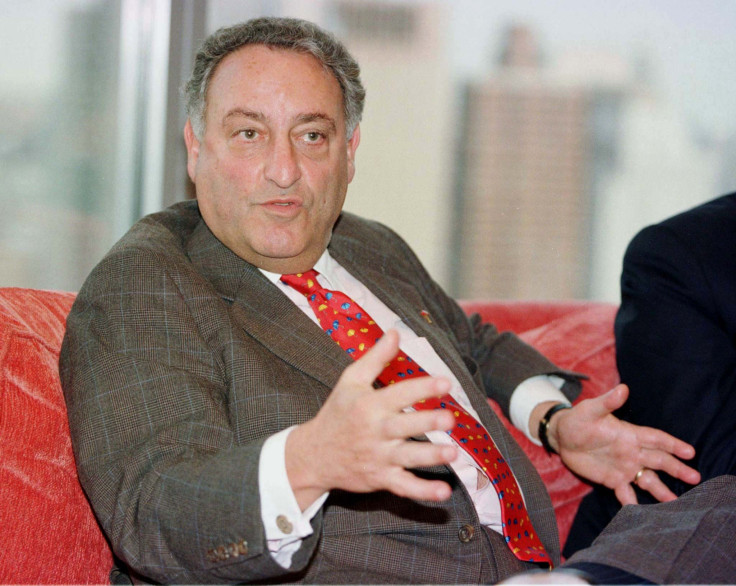Like Jobs, Other Dynamos Were Fired And Came Back: Iacocca, Weill

As the world recalls the death of Steve Jobs, Chairman of Apple (Nasdaq: AAPL), the world's most valuable technology company, a year ago, his career of triumphs and setbacks has parallels with several great business leaders, including two living legends: Lee Iacocca and Sanford Weill.
“I was out and very publicly out,” Jobs recalled at Stanford University after he was fired from Apple in 1985 by the CEO he recruited, John Sculley, a former vp of Pepsico Inc. (NYSE: PEP). “I was a very public failure.”
Not to be held back, Jobs, then 30, went on to start two companies, NeXT Computer Inc., with financial backing from computer pioneer H. Ross Perot, and Pixar Animation Studios. NeXT never accomplished much but made pioneering advances in software, which were useful when Apple bought the company as part of Jobs’ return in 1997
Pixar was acquired by Walt Disney Co. (NYSE: DIS) in 2006 for $7.4 billion, making Jobs the No. 1 investor in the Santa Monica, Calif., entertainment giant. Jobs also served until his death as a Disney director.
Once Jobs returned to Apple, of Cupertino, Calif., as CEO, the company started the uptrend, which, since his death has left it the world’s most valuable company. In his lifetime, shares of Apple soared 6,700 percent. In the year since his demise, they gained another 74 percent, boosting its market capitalization to $618 billion.
Lee Iacocca, now 88, is one of the most celebrated business executives in Detroit. After graduate work in engineering at Princeton, he joined Ford Motor Co. (NYSE: F) in 1946, where he was among the top designers and marketers.
Among Iacocca’s success stories were the Mustang, new models of Lincoln Continental including Mark 111 and the Escort. He was elected president in 1970 but fell out with his ultimate boss, Henry Ford 2d, who fired him in 1978.
The rest is history: In the throes of a recession and competition from Japan, Iacocca was courted by arch-rival Chrysler Corp., which made him CEO. The former Ford designer scored big hits with the Omni and Horizon, then won massive loan guarantees from the U.S. Congress after approaching President Jimmy Carter.
The financially stabilized Chrysler then launched the K-car, minivans and front-wheel drive vehicles that had been frowned upon at Ford. They were huge hits and saved the company.
Iacocca himself made commercials for the K-car and was featured in Chrysler’s “The pride is back, born in America” campaigns. He retired in 1992.
As part of his devotion to public service, Iaccoca, whose given name is Lido, headed the foundation that restored the Statue of Liberty and restored the immigration halls at Ellis Island, in New York harbor.
Sanford Weill, now 79, retired as chairman of Citigroup (NYSE: C), which he invented via the 1998 acquisition of his Travelers Group with Citibank, to create a financial “supermarket.”
But Weill’s career didn’t go in a straight line. After his 1955 graduation from Cornell, Weill started at Bear Stearns and then fell in with a group of partners who took over smaller trading houses, ultimately becoming Shearson Loeb Rhoades by 1974. It was the No. 2 securities firm.
His troubles began when Shearson was acquired by American Express Corp. (NYSE: AXP) in 1981, with the idea of creating a financial powerhouse. But American Express CEO James Robinson fired Weill in 1985.
On his own, Weill, along with his trusted No. 2, Jamie Dimon, now CEO of JPMorgan Chase (NYSE: JPM), bought Commercial Credit, then a Baltimore-based subsidiary of computer maker Control Data Corp.
From that base, Weill then expanded Commercial Credit through acquisitions of Gulf Insurance, then financial services company Primerica, which owned Smith Barney as well as Williams Insurance.
Now backed by the huge cash assets of insurance, Weill bulked up Primerica so that he was able to acquire Shearson Lehman, the descendant of his first company, then ultimate control of Travelers Insurance, which he renamed Travelers Group.
As head of Citigroup, Weill was back at the top until 2003, when he retired, devoting himself to interests such as Carnegie Hall and Cornell, to which he and his wife have donated hundreds of millions.
Jobs, of course, died young, at 56, while Iacocca and Weill enjoy the benefits of old age and active lives. But the trio share common interests in creativity, ingenuity, doggedness and persistence, knowing how to stage successful comebacks.
Apple shares traded at $655.77, down $11.03 early Friday afternoon.
© Copyright IBTimes 2024. All rights reserved.






















